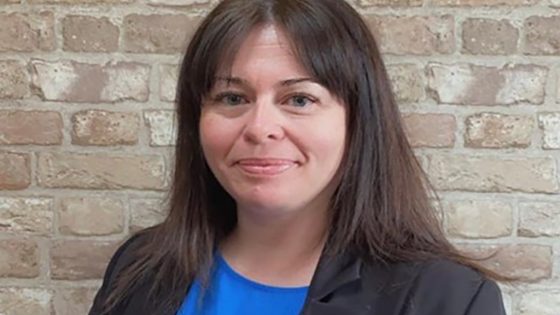Sarah Bolton is chief executive of Lighthouse Charity
As we mark World Suicide Prevention Day, I am conscious that there will be a huge focus on what could or should be done to support our industry’s workforce. Greater awareness of some of the issues can only be a positive thing. But for the Lighthouse Charity, our work to improve the wellbeing of our construction community is continuous every hour, every day, every month.
“Having the right people in place and then ensuring they get the support they need is paramount”
One of the keys to improving our industry’s wellbeing is to have mental health first aiders (MHFAs) in the workplace who are trained to spot the early signs and symptoms of someone who may be struggling and start a supportive conversation. These conversations can have a life-changing and a life-saving impact.
But this is not a tick-box exercise, and having the right people in place and then ensuring they get the support they need is paramount.
Volunteers should be exactly that, not individuals nominated purely on their seniority in an organisation. A good MHFA is someone who already demonstrates that they are a non-judgemental listener, can empathise with others, and offer hope and support.
Our 15,000 MHFAs deal with extremely sensitive information on a regular basis and bear the emotional weight of our workforce. So the next critical element is to ensure that they too can access the professional support they need.
Our charity has always been at the forefront of providing expert proactive and reactive charitable services and this is no exception. We offer a unique programme of support for the industry’s MHFAs that incorporates access to peer support networks and new resources, and empowers people with the skills to monitor their own wellbeing. This programme of support has been developed through feedback from MHFAs who have first-hand experience of the many challenges our workforce face.
Our peer support sessions are facilitated by a mental health professional and offer people the opportunity to share their experiences with other MHFAs and receive encouragement in their role. It also offers updates on new referral pathways and resources so they can signpost effectively.
Mitigating burnout
We also offer a six-week Wellbeing Support course for MHFAs, which focusses on the importance of maintaining and restoring their own wellbeing and introduces mind-body practices to increase resilience to mitigate burnout.
Some could say that all of this is a ‘sticking plaster’ that only resolves a particular issue temporarily or until another problem arises. It’s true that this support is reactive, but the distinction is that we constantly seek to identify the root causes of the emotional, physical and financial wellbeing challenges faced by our workforce.
One of the ways that we achieve this is by giving MHFAs the opportunity to log their interventions. All information is strictly confidential and does not identify the individuals supported but does identify the issues being raised. These have included suicidal thoughts, relationship breakdowns, financial worries and feelings of isolation and loneliness. This information helps drive the strategy for our proactive interventions and enables us to focus our efforts accordingly.
Once an intervention has been logged, they are able to request further support by speaking with an MHFA instructor or counsellor. This is particularly important after a traumatic or difficult incident and allows them to decompress and reflect on any impact on them as individuals.
Our MHFAs are incredibly valuable but must be part of a much wider strategy that responds to and also tackles the root cause of the issues affecting our workforce. That demands better mental health literacy and a unified determination to support a positive culture change across every level. Our industry is unique, and we can all achieve safe and sustainable futures for our workers if we all play our part.

